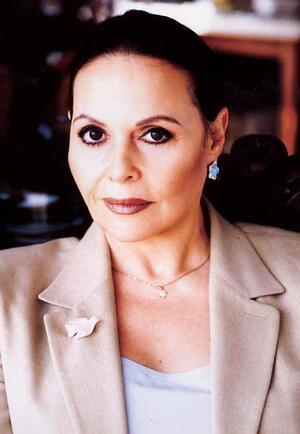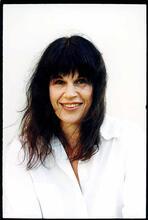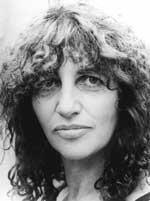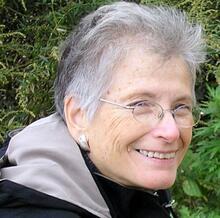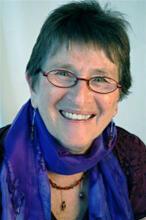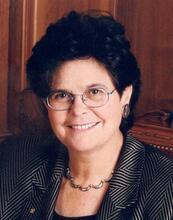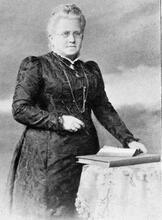Filmmakers, Israeli
Israeli filmmaking is a national cultural expression, and female Israeli directors have become major contributors to that expression. In contrast with Israeli films made by men, which often deal with political, military, and national identity issues, the complex narrative films made by women generally deal with relationships and family conflicts and include sensitive portrayals of human beings grappling with religious, professional, and personal issues. Some filmmakers, such as Michal Bat-Adam, deal heavily with autobiographical themes, while others explore women’s issues in contemporary society, including careers, sexuality, and marriage. Frequent topics also include obstacles faced by Orthodox women and the effects of the Holocaust on survivors and their descendants. Israeli cinema is unique in dealing primarily with the “after-images” of the Holocaust, rather than with historical portrayals of the Shoah itself.
An analysis of the history and contemporary trends of Israeli cinema undeniably shows that quality filmmaking has developed along unique thematic and stylistic lines. These characteristics represent the beginnings of a national filmmaking expression, one that has developed in the wake of the new Israeli Jewish identity. As seen through cinema, this identity is the sum of many parts—the history, the complexity of the political and social issues, the years of tension, and the character of the people of Israel. It is a mixture of the ideal and the real, the political and the personal, war and the search for peace, the universal and the particular. It is also about the preservation of Jewish tradition and culture, and conversely a longing to be ordinary, to be like everyone else. Israeli filmmaking has become a national cultural expression, and Israeli film directors, both male and female, are major contributors to that expression.
Women filmmakers who have made a significant contribution to Israeli film, in both the narrative and documentary film genres, have added a particularly feminist perspective to Israeli filmmaking. The films that may be included under the rubric of “feminist perspective” comprise films directed by women and/or films scripted by women, as well as adaptations based on works by female authors. In contrast with Israeli films made by me,n which deal with political and military issues, issues of national identity, ethnic situations, and stereotypes, the complex narrative films made by women deal with relationships and family issues and include sensitive portrayals of human beings grappling with personal issues. The first feature film directed by a woman in Israel, albeit not an Israeli woman, Ellidah Geyrah’s Before Tomorrow (1969), was also the first to deal with male-female relationships in a universal context. Since that time, many women have joined the ranks of filmmakers in Israel.
Autobiographical Filmmaking
Actress, director, and scriptwriter Michal Bat-Adam, the most prolific woman filmmaker in Israel, made eight full-length narrative films between 1979 and 1998. They are intimate portrayals of women that deal with complex relationships, unique friendships, passionate loves, conflicts and tensions, marriage and coming of age. All are heavily laden with autobiographical elements, and all are strong and sensitive.
Bat-Adam’s first film, Moments (1979), which received much critical acclaim, expresses emotions and feelings cinematically rather than through the use of dialogue. Seen in flashback, the story is about a pensive young writer (played by Bat-Adam), who meets a French tourist on the train from Tel Aviv to Jerusalem. This chance meeting between two women develops into a complex, intense relationship expressed without physical contact.
Bat-Adam’s second feature, A Thin Line (1980), is a psychological study of a woman with emotional problems. Bat-Adam’s mother was emotionally ill and, as a young child, Bat-Adam often found herself caring for her mother. This is reflected in the film, which focuses on a mother’s dependency on her young daughter, who struggles to sustain her in times of need. The film is similar to Moments in its emphasis on mood, feelings ,and facial expressions. As a child, Bat-Adam was sent to a A voluntary collective community, mainly agricultural, in which there is no private wealth and which is responsible for all the needs of its members and their families.kibbutz boarding school because her mother was unable to care for her. This experience is reflected in her third film, Boy Meets Girl (1983), in which Bat-Adam tells the story of a fourth-grade city girl who goes to study at a kibbutz w,here she finds herself the outsider in a closed society. The film is about conflicts and friendships between girls and boys at this age.
Bat-Adam directed two literary adaptations—The Lover (1986), based on the book by A. B. Yehoshua, and A Thousand and One Wives (1989), based on the novel by Dan Benaya Serri. The first is a film about unfulfilled love, family tensions, and relations between Jews and Arabs within Israeli society, all against the background of the period of the 1973 The Day of Atonement, which falls on the 10th day of the Hebrew month of Tishrei and is devoted to prayer and fasting.Yom Kippur War. Bat-Adam stars as Asia, a middle-aged schoolteacher, married to Adam (Yehoram Head of the Torah academies of Sura and Pumbedita in 6th to 11th c. Babylonia.Gaon), a garage mechanic. Yehoshua's story is a literary commentary and middle-aged Asia symbolizes a slumbering Israeli society, searching for fulfillment, caught unawares by the perils of the Yom Kippur War. In a completely different style, A Thousand and One Wives is a period piece, a delicate tale of superstition, naiveté, and jealousy, set in the Bukharan quarter of Jerusalem at the end of the nineteenth century.
In addition to The Lover, Bat-Adam directed another political commentary, The Deserter’s Wife (1992). This is the story of a French concert pianist, Fanny Ardant, who moves to Israel with her new husband during the period of the first intifada (Palestinian uprising). Her husband returns from his military reserve service unable to speak or respond to his environment. His incapacity to communicate must be interpreted as a direct result of his frustrations and powerless at not being able to oppose the Occupation of the West Bank. While providing a unique perspective on how the wife copes with her husband’s incapacity to function, the film also conveys how Israeli society copes with issues of war.
Two later films—Aya, An Imagined Autobiography (1994) and Love at Second Sight (1998)—mix the contemporary period with memories of the past. Aya, An Imagined Autobiography is a touching personal document about relationships between mother and daughter and the hardships of young girls growing up. Bat-Adam herself has stated that one must look at this autobiographical film as a reflection of the emotional memory of the filmmaker, the accumulation of little fantasies and important things that occur in one’s mind, which are the elements that make up the “real” or “imagined” autobiography. Love at Second Sight is a film that portrays a woman who has the courage to act upon her gut emotions. Nina is a photo-journalist who discovers, in one of her photos, the image of a man who stirs her curiosity. As she sets out to find this man, about whom she knows nothing, she becomes obsessed with him and imagines him as her destiny.
Women's Issues in Contemporary Society
As further narrative films about women in Israel are produced, the images are changing. Women on the screen no longer appear against the backdrop of stories about men, as they once were; they are no longer seen as war widows, prostitutes or ethnic stereotypes. The Israeli women portrayed are bec,oming “normal” and are appearing in roles with depth and sensitivity that reflect the new individualism of the 1990s.
The best example of this new individualism and professionalism can be seen in the adaptation of Irit Linur’s best-selling novel, The Song of the Siren (directed by Eytan Fox, 1994). Extraordinarily popular with Israeli audiences, the film, a romantic and quirky comedy, rich in texture, color, and humor, is set against the stress and absurdity of the Gulf War of 1991. The film, whose title refers to the air-raid sirens that sounded almost every night during the six weeks of the war, is the story of an assertive professional woman who experiences emotional growth and genuine romance. At the same time, the film is critical of the superficial lifestyle of trendy Tel Aviv urban society.
The new professional woman is also seen in another literary adaptation, Blind Man’s Bluff (directed by Aner Preminger, 1993). Based on a book by Lily Perry Amitai, the film portrays the story of a young concert pianist, a single woman and second-generation Holocaust survivor. The narrative follows her as she acquires independence and learns to live according to her own dreams for herself rather than according to the expectations and manipulative demands of her mother. Another film that deals with a mother-daughter relationship is Mira Recanati’s A Thousand Little Kisses (1981), which portrays the complexities and jealousies in mother-daughter relationships and focuses specifically on a stormy period following surprising discoveries after the death of the father. Upon her father’s death, Alma (Rivka Neuman) is inexplicably drawn into his past and discovers that her father had not only had a long-term secret affair, but also had a child by the other woman. Torn between her father’s two lives, Alma becomes passionately involved with the other woman’s son. Her newly widowed mother, who already feels betrayed by her husband’s infidelity and robbed of her own memories, now feels even more betrayed by the daughter who has seemingly abandoned her for the father’s other family. After a claustrophobic sequence in which the mother suffers a month-long siege of hiding from reality and coming to terms with her own subjugated needs and desires, she overcomes her feelings of betrayal, despite the pain and suffering that she has endured.
Two other films that deal with the single woman trying to assert herself in the milieu of urban life are Tel Aviv Stories (1992) and Circles (1980). Tel Aviv Stories, made by two young filmmakers, Ayelet Menachemi and Nirit Yaron, comprises three short dramatic episodes about Tel Aviv women. The first two episodes are about working women who suffer alienation in the jungle atmosphere of big city life. The third episode, entitled, Divorce (Get), is about a woman willing to resort to desperate means in response to discriminatory rabbinic laws governing divorce. Idit Shechori’s study, Circles, is about life in the modern Israeli urban center of Tel Aviv. Four women spend a Friday evening together—one is a swinger who knows everyone and seems to sleep with just about everyone she knows; one is a depressed divorcée; one is a young and innocent girl who grew up in a small town and has just completed her military service; and the fourth is a lesbian. The drama follows their developing relationships, their worries and pains, all set against a bustling Tel Aviv nightlife.
The contemporary period has brought about a new consciousness concerning the issue of abuse in the family and female filmmakers are bravely beginning to portray these “women’s” issues on the screen. Filmmaker Tsipi Trope has made two intense studies of the relationships between husband and wife, both of which deal with contemporary domestic issues. Tell Me That You Love Me (1983) portrays two intertwined tales of married women—one about the pressures of a two-career family and the other about physical abuse. Trope’s Chronicle of Love (1998) deals with similar issues.
Director Julie Shles began her filmmaking career as a documentary filmmaker. Her first attempt in the area of feature filmmaking, Afula Express (1997), is an award-winning comedy about love, fantasy and dreams, portraying quirky and overweight characters with much depth and charm. The film’s success lies in its small magical moments of humor, intimacy, and serendipity.
Hannah Azoulai-Hasfari is known to Israeli audiences as an actress of stage and screen. Searching for her own cultural roots, she wrote the screenplay for Sh’chur (directed by her husband, Shmuel Hasfari, 1994), which is based partially on her own family’s story. A film about cultural conflicts, it deals with superstition, family hardship and sacrifice. The conflict lies imbedded in the childhood memories of the Israeli-born daughter of a traditional and old-fashioned Moroccan family—a family which solves domestic problems through the use of white magic (sh’chur) and the casting of spells. Looking back years later, the daughter, who as a youngster had been sent to Jerusalem to attend high school (as was Azoulai-Hasfari), finds it hard to repress her ambivalent feelings, which hover between nostalgic love and angry contempt.
A highly personal approach to filmmaking can be seen in Anat Zuria’s grappling with issues of the intersection between Orthodox Judaism and contemporary feminism. Zuria is an Orthodox woman, a graduate of the Ma’aleh Film School, who has chosen to use filmmaking as a form of religious criticism, feminist activity, and, if she is successful, a way to influence the Orthodox Jewish discourse. Her films do not grapple with the hard-to-grasp larger issues, but rather with individual stories of specific women. In her first prize-winning film, Purity (2002), Zuria exposes subjects generally not discussed in religious circles—married life, sexuality, family purity, laws of female impurity and Ritual bathmikveh (ritual immersion). Zuria looks sensitively at the stories of three women. Natalie is a mother of twins, who exposes her tragic story of a marriage to a man who has recently divorced her because she refused to continue having babies after a very difficult pregnancy and because she has stopped believing in the laws of mikveh; Katie, the mother of many children, has a uterine problem and experiences staining almost all the time, making her impure and, as a consequence, unable to have any physical contact with her husband. They have decided to make an accommodation by differentiating between intimate relations and normal, everyday contact, such as holding hands, a hug at the end of the day, emotional contact—which they have decided to permit even when she is “impure.” Shira is a young bride, who is being taught the laws of family purity by her mother. They go to the mikveh and Shira expresses her dislike of, perhaps extreme ambivalence to, the entire subject. In her second film, Sentenced to Marriage (2004), Zuria chose to handle the stories of women who are trapped in marriage by religious law. Tamar, Sari, and Smadar are young, married women who, even though separated from their husbands, are unable to obtain a divorce without their husbands’ consent. While waiting for their husbands to agree, they are not permitted relations with another man, are not permitted to bear children and, as the years tick by, are ensnared in a Kafkaesque trap.
After-Images of the Holocaust
It is never easy to raise children, and it is even more difficult if one is raising them in the shadow of another, nightmarish, time and place. Relationships between parents and children become increasingly complicated against the background of such memories. There are often feelings of guilt—the parents feel guilt at having survived, at not having enough emotional strength to pass along the memories of each and every one of the relatives who were lost, at not telling their stories or perhaps the opposite, telling their stories too much—while the children feel guilt at being incapable of replacing loved ones lost in the ashes of the past. This complex relationship between parents and children, mothers and daughters, especially those that involve survivors of the Holocaust into the second and third generation, is the subject of a number of Israeli films produced during the 1980s and 1990s.
In an attempt to come to terms with her own experiences as the daughter of a Holocaust survivor, actress Gila Almagor wrote a book and produced a one-woman play which told her story. This autobiographical story provided the material for two full-length dramatic films, both directed by Eli Cohen—The Summer of Aviya (1988) and its sequel, Under the Domim Tree (1995). Both films deal with Almagor’s own difficulties growing up as the child of a mentally unbalanced survivor, living in the shadow of her mother’s memories. Almagor does not attempt or intend to portray her own version of history. Rather, she portrays the daughter’s understanding of what happened to her mother—not so much the story of the mother-survivor as the tale of the daughter’s living with that story.
Another Israeli dramatic film about a Holocaust survivor living in the past is Tsipi Trope’s Tel Aviv–Berlin (1987), which confronts the survivor’s difficulties in adapting to his surroundings and portrays him as a man obsessed with memories of a world which was destroyed. Benjamin, a survivor of Auschwitz, lives with the memories of his lost family and surrounds himself with the music and art of pre-war Berlin. Although he is a married man, he finds himself attracted to a beautiful and elegant woman from Berlin, who represents for him the world of culture that he misses. At the same time, he becomes obsessed with a local blacksmith, who had been the Kapo in charge of his father’s barracks at Auschwitz. This is a film about revenge, moral choices, and a person’s difficulties in adapting to a new life and culture.
Two female documentary filmmakers, Orna Ben-Dor and Tsipi Reibenbach, have also grappled with the subject of Holocaust survivors. Orna Ben-Dor’s highly acclaimed film, Due to That War (1988), documents the impact of the Holocaust on the lives of two second generation survivors—singer Yehuda Poliker and lyricist Ya’akov Gilad, popular rock figures (of rock band “Benzine” fame). The film tells the story of a Descendants of the Jews who lived in Spain and Portugal before the explusion of 1492; primarily Jews of N. Africa, Italy, the Middle East and the Balkans.Sephardi and an Jews of European origin and their descendants, including most of North and South American Jewry.Ashkenazi, one working-class, the other an intellectual. Poliker’s father, Jacko, was born in Saloniki and deported by the Nazis to an extermination camp. Gilad’s mother, Halina Birnbaum, is an expressive writer and poet from Warsaw, whose memories haunt her work. In a more personal and painstaking style, Tsipi Reibenbach, in Choice and Destiny (1993), provides insight into the details of her parents’ lives— their routines, obsessions and memories. The lingering camera emphasizes small gestures and habits in its intimate portrayal of the everyday lives of these two survivors. During most of the film, her father relates stories from his past, while her mother lurks in the shadows, a silent image, a woman who never spoke about her Holocaust experiences throughout all the years of her daughter’s growing up. Suddenly and spontaneously, the mother opens up emotionally.
It is significant that foreign portrayals of the Holocaust concern themselves overwhelmingly with images from the Nazi period, whereas Israeli cinema deals primarily with the after-images. In fact, Israeli cinema has placed an unspoken, self-imposed censorship upon itself—no one has yet attempted to dramatically portray the events of that terrible time. As a result, there is no body of narrative films produced by Israeli filmmakers which deal with the brutality of the Holocaust period and the machinery of death.
Conclusion
Israeli society is a developing and maturing society, no longer obsessed solely with cosmic and political issues of existence but interested also in the needs of the individual. This is reflected on the Israeli screen and in the significant contribution made by female filmmakers. Israeli cinema has moved from an emphasis on communal issues to an in-depth understanding of the individual, from the sacrifices of the pioneering period to the materialism and personal egotism of the contemporary period, from stereotypical heroic male images to more complex and problematic images of the Israeli (both male and female) in contemporary society. Moreover, the screen images produced by female filmmakers, scriptwriters, and authors, raise new issues and present new perspectives on how Israeli society regards war and morality, family relationships and women’s issues. The woman’s vision in Israeli filmmaking also reflects a deep awareness and sensitivity in dealing with issues of memory.
Kronish, Amy W. World Cinema: Israel. Trowbridge, Wiltshire: Flicks Books and Cranbury, New Jersey: Associated Univ. Presses, 1996.
Shnitzer, Meir. Israeli Cinema: Facts, Plots, Directors, Opinions (Hebrew). Jerusalem: 1994.

